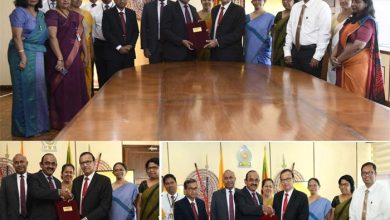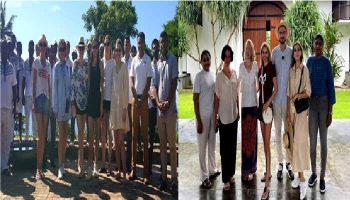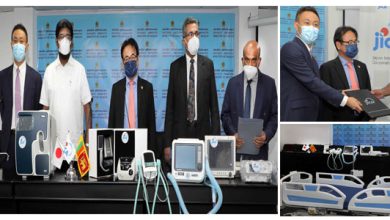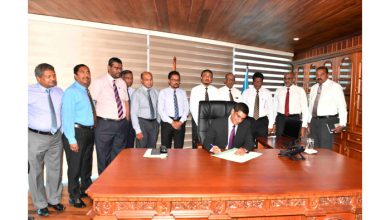Sri Lanka Breaks New Ground With the Launch of the ECGI
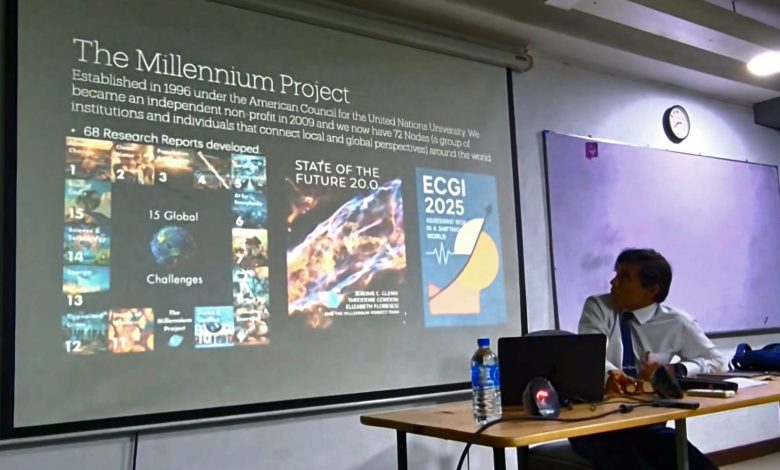
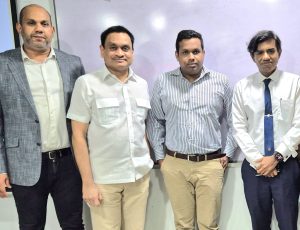
W. J. M. Damith Lokubandara – Senior Fellow;
Prof. Asanga Abeyagoonasekera – Chairman, Millennium Project Sri Lanka Node.
In a defining stride toward transparent governance and predictive foresight, the Millennium Project Sri Lanka Node has launched the Economic Crime and Geopolitics Index (ECGI) at the Sri Lanka Press Institute, in the presence of a distinguished gathering of policymakers, academics, diplomats, and media leaders.
The launch marks a pivotal juncture in Sri Lanka’s efforts to disentangle the nexus between economic malfeasance and geopolitical influence, aligning seamlessly with the Government’s current initiatives to weed out corruption, money laundering, cyber fraud, and tax evasion.
Conceptualised and orchestrated by Prof. Asanga Abeyagoonasekera, Executive Director of the South Asia Foresight Network (SAFN) and Chairman of the Millennium Project Sri Lanka Node (Washington D.C., USA), the ECGI provides a multi-dimensional analytical lens to map, quantify, and anticipate how economic crime and external power structures intertwine to define a nation’s stability index.
Currently being benchmarked across the Millennium Project’s global network of over 70 countries, the ECGI is rapidly garnering recognition as an indispensable policy instrument for governments, international organisations, and regulators seeking evidence-based insight into systemic risks.
A Framework Forged from Four Fronts
The ECGI distils its findings from four core parameters:
-
Corruption Perception: Probing the texture of transparency and moral governance.
-
Severity of Economic Crime: Weighing the scale of illicit financial networks and organised crime.
-
National Response Capacity: Assessing institutional agility, enforcement depth, and anti-crime policy strength.
-
Geopolitical Influence: Measuring external leverage through diplomatic, military, and economic power projection.
“Having studied Sri Lanka, Nepal, and Bangladesh before their social convulsions, it became evident that corruption, financial crime, and youth-led discontent are intertwined threads of the same fabric. The ECGI is designed to foresee such ruptures and to strengthen the architecture of resilience,” reflected Prof. Abeyagoonasekera.
According to preliminary findings from the 2025 pilot, countries including Pakistan, Sri Lanka, Nepal, Bangladesh, and Indonesia fall within the High-Risk cluster, beset by chronic corruption, institutional frailty, and foreign entanglements. Of nine high-risk nations, three have already transitioned from upheaval to regime change, while others—Myanmar, India, Cambodia, Pakistan, and Afghanistan—continue to oscillate between instability and autocratic consolidation. The Philippines, meanwhile, hovers on the cusp of the high-risk threshold.
Founded in 1996 under the American Council for the United Nations University, the Millennium Project has since evolved into one of the world’s largest participatory think tanks, now established in 72 nations. It brings together futurists, policymakers, economists, and scholars in a shared pursuit of global foresight and ethical governance.
Since inaugurating its Sri Lanka Node in May 2025, the Project’s leadership has engaged extensively with the Ministry of Foreign Affairs and the Prime Minister’s Office to explore collaborative pathways toward a unified, sustainable, and ethically governed future built upon the pillars of economic growth, social harmony, environmental stewardship, and transparency.



